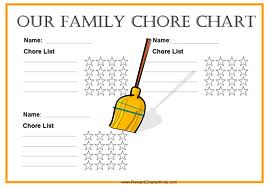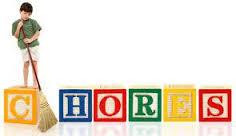In most two-parent households today, both parents work outside the home, at least part time. Emphasis on roles in the home, are placed on shared ownership of the vast duties expected from mothers, fathers and children. While it is daunting to consider what it takes to be successful as a family unit, it isn’t impossible. Within the duties of the home, there are still plenty of opportunities to make family time count.
Let’s face it; life is pretty easy when we have only ourselves to look after. When a spouse or significant other commits, there is a responsibility to each other and shared duties, yet family and home life is still relatively manageable. When children join the family, a whole new dimension appears. There is a requirement in parenthood to instill values, develop morals, and mold the child into a productive member of society.
What we do, and how we spend our time, speaks volumes of what we value. How we do what we do, sends strong messages to our children. You may be surprised how our children perceive value in conjunction with their family role. When we empower family members to contribute to the family, they buy into the goals that are set, which leads to individual success and overall family pride. This starts at a very young age.
Children are born to be in relationship with others. They learn how to form relational bonds from those they spend the most time with in their first two years of life. Talking, interacting and physical contact all teach a child the family patterns and expectations which will ultimately help with developing values and family roles.
Praise and encouragement along with involving them when completing everyday tasks (i.e. laundry, dusting, preparing dinner) will make the next steps to learning and family involvement easier. Make no mistake, children absorb happenings in their environment at an astonishing rate from the moment they are born.
At the toddler stage, ages 2 – 3 years, children should actively be involved in the household chores. Keep in mind, the chores selected should be age appropriate. It is true that including your toddler in household chores may make more work for you in the short-term. Their perception of complete or clean will be completely different than yours. At this age and stage, it is wise to focus on their effort and willingness; offer praise and perhaps random rewards such as stickers. Remember to be sincere in your praise. Keep it simple.
When children reach preschool age, 4 – 5years, they are entering a time where structure is important. They are demonstrating independence and benefit from structural expectations. Build on the toddler chores, by adding more age appropriate responsibilities to their list. Keep a graph and time sheet handy to document their chore success. This is a great way to  develop independence. Children of this age like to see progression. Offer stickers as rewards to place on their chart. This might be a great time to offer appropriate monetary incentives as well.
develop independence. Children of this age like to see progression. Offer stickers as rewards to place on their chart. This might be a great time to offer appropriate monetary incentives as well.
The previous two age categories require an abundance of guidance and partnering to complete tasks. When children enter the early elementary years, ages 6 – 8 years, they can handle many of the tasks with limited supervision. This is especially so, when they have demonstrated responsibility and capability consistently.
As children progress into the elementary years and middle school years, the investing in the yearly years really pays off. There is less fighting and negotiating over duties and responsibilities, especially when parents maintain firm boundaries about their intentions, while holding a certain level of flexibility when unusual circumstances arise.
Remember that leading by example is key. If you are willing to pitch in and do the work yourself, they will be more likely to join the cause. More hands make light work. Keep the tasks  positive and offer incentives, not bribes, for a job well done. Follow up all family accomplishments with a reward. Make it worth working for. This is how you make family time count.
positive and offer incentives, not bribes, for a job well done. Follow up all family accomplishments with a reward. Make it worth working for. This is how you make family time count.


